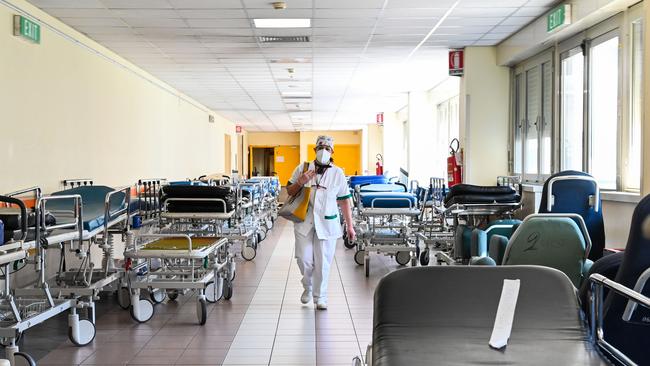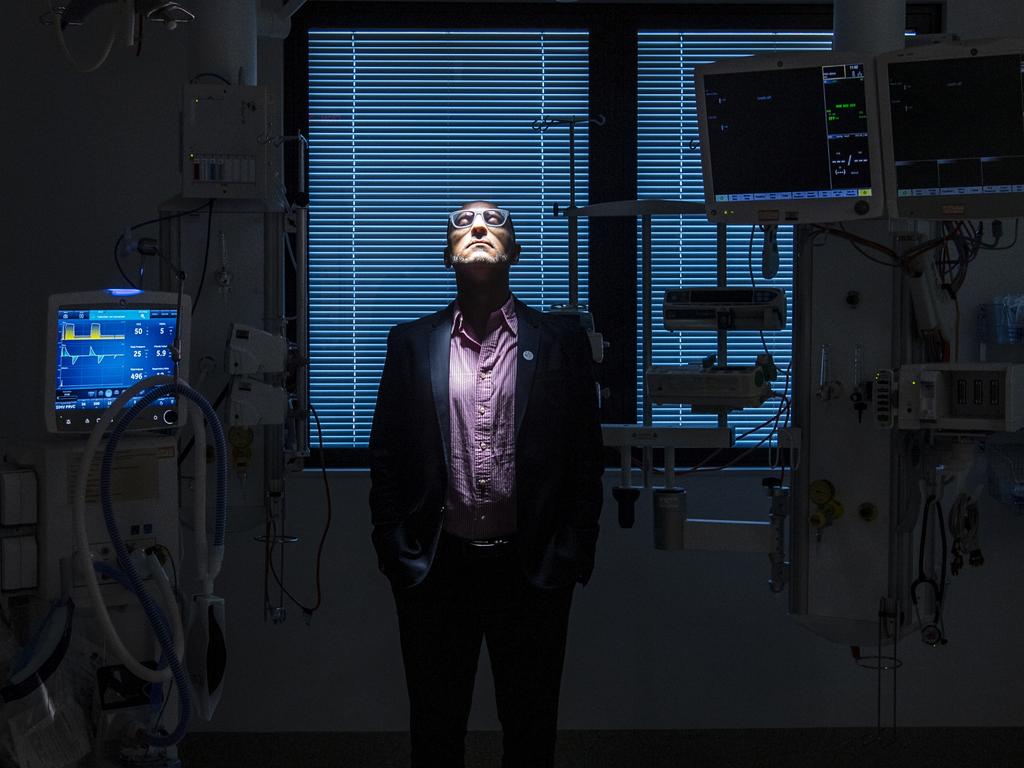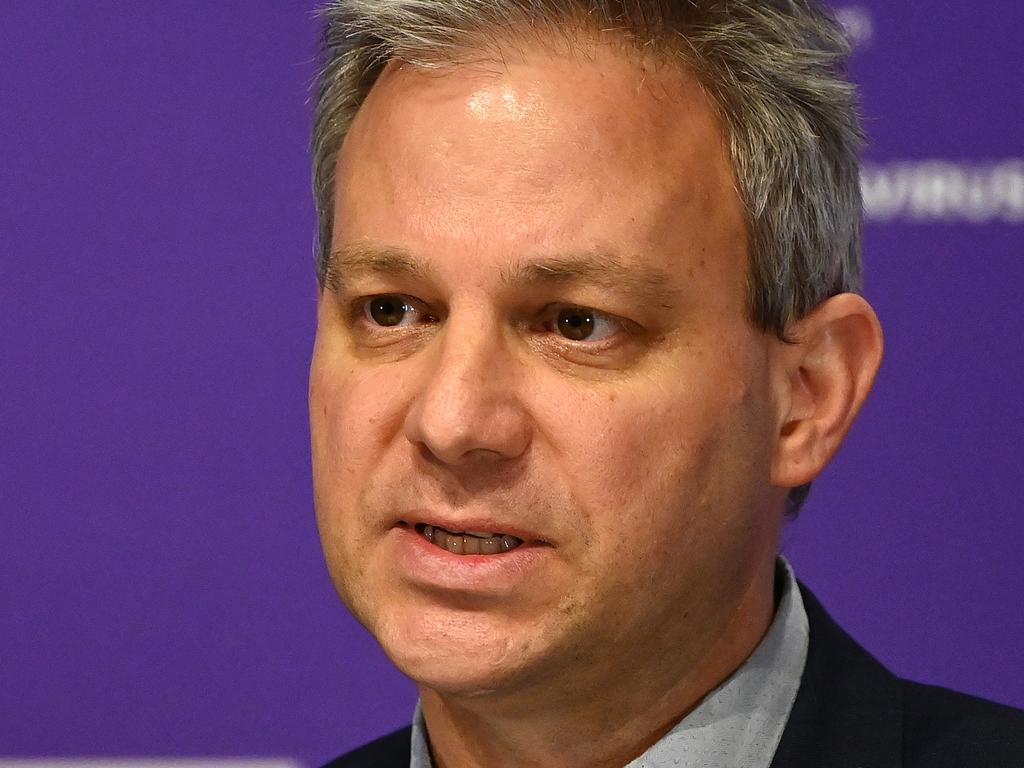Coronavirus: Italian COVID-19 survivors haunted by fatigue and anxiety for months
Doctors are realising just how debilitating coronavirus is, with long-lasting damage, heart and memory problems months on.

Piero Clavario, an Italian doctor, was watching a former COVID-19 patient doing squat thrusts when he realised how debilitating the virus can be long after sufferers seem to have recovered.
“My patient was a 52-year-old nurse who hadn’t had Covid too seriously and was better but she was struggling,” he said. “She knelt down to do a squat thrust and was too exhausted to stand up.”
Just as Italy was the first western country to be overwhelmed by coronavirus, with 35,000 dying to date, it has been among the first to slow the contagion and launch studies into the long-term effects on sufferers.
The initial results suggest that COVID-19 does far more than damage the lungs, and that the effects may be long lasting. In Genoa, where he runs a rehabilitation centre for heart patients, Dr Clavario wanted to assess what former Covid patients were experiencing, and whether they needed a formalised program to help them recover fully.
Anxiety, depression, exhaustion
“We rang 140 former sufferers and found out half had psychological problems, ranging from anxiety to depression, and we invited 60 in to have a physical evaluation. We used the same protocol we use with heart patients.”
That meant getting them to pace up and down the corridor in his office while testing their breathing, balance and heart performance. Nearly 40 per cent were suffering from loss of balance and 20 per cent were suffering from extreme fatigue and muscular weakness, earning them an invite to train at a gym he set up especially for them.
“We thought the people needing to exercise would be just those who had spent time in intensive care but we are seeing people in their forties and fifties who had never had oxygen or breathing problems when they had Covid, and have no visible lung problems,” he said.
After the first cases of the virus were diagnosed in Italy in late February, the area around Bergamo in the northern region of Lombardy quickly emerged as the epicentre of the outbreak, with about 6000 deaths.
About 2400 patients were treated at the Papa Giovanni XXIII hospital in the city, where intensive care wards are now Covid-free and doctors are able to turn their attention to studying former sufferers. Five hundred former patients, all of whom were given oxygen while they were treated for the virus, have been interviewed.
Breathing, heart, memory problems
The findings are due in July but early results show that after one to three months 30 per cent still have breathing problems, 10 per cent have heart problems and about 9 per cent have cognitive problems, including loss of memory and concentration.
“We have cases of people who got back their senses of taste and smell when they recovered, only to lose them again,” said Marco Rizzi, who is leading the study and also co-chairing a World Health Organisation working group on Covid consequences.
“This is a multi-organ virus and we will only discover the real effects in coming months,” he said.
At Milan’s San Raffaele hospital, where 150 Covid patients recovered after treatment, doctors figured out fast that 80 per cent of them were suffering from cognitive problems while infected, including memory loss, confusion, depression and loss of spatial orientation.
“Seeing that so early prompted us to prepare for rehabilitation, which now involves memory exercises,” said Dr Sandro Iannaccone. “It’s linked to the lack of oxygen reaching the brain during the illness, which is why intubated patients tended to fare better than those on masks, because they got more oxygen,” he said.
Limbs amputated
Dr Iannaccone said that another ominous consequence of Covid was thrombosis, which led to six of the 150 patients having limbs amputated. “It’s because veins and arteries can be inflamed as a response to the production of Covid antibodies, hurting circulation,” he said.
In the UK an $15m study into the long-term health effects has been announced; it will follow 10,000 patients for up to 25 years.
James Chalmers, professor and consultant respiratory physician at the School of Medicine, University of Dundee, is already following 500 survivors and has given warning that fit and young patients are still at risk of lasting lung problems.
The health secretary, Matt Hancock, said: “I am concerned there’s increasing evidence a minority of people — but a significant minority — have long-term impacts and it can be quite debilitating.”
The Times







To join the conversation, please log in. Don't have an account? Register
Join the conversation, you are commenting as Logout